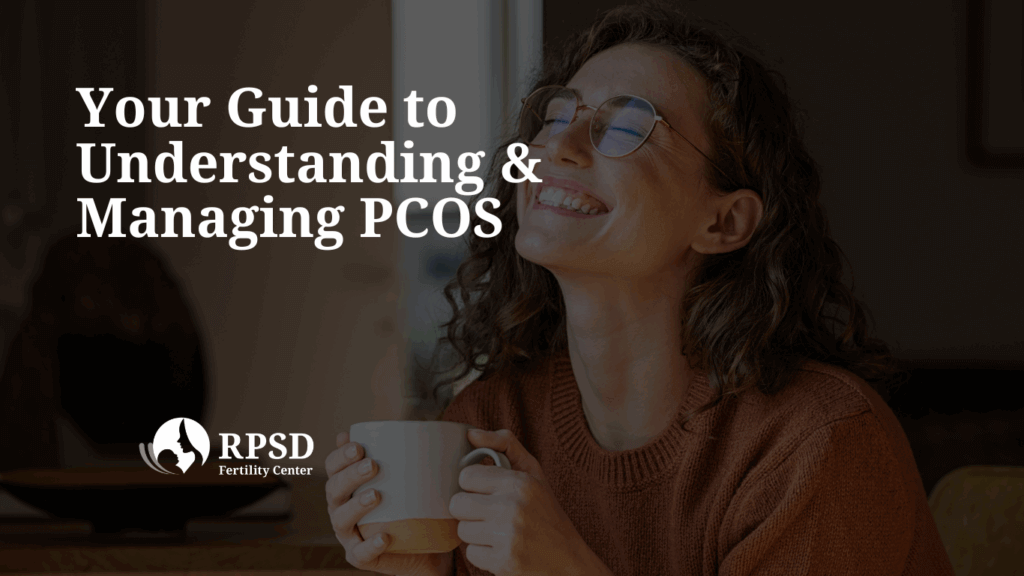
September is PCOS Awareness Month, a time to spotlight one of the most common hormonal conditions affecting people of reproductive age. Polycystic Ovary Syndrome (PCOS) impacts health in many ways — from menstrual cycles and metabolism to fertility and emotional well-being.
At Reproductive Partners Fertility Center – San Diego, we see firsthand how confusing PCOS can feel. That’s why we’ve created this guide to managing PCOS, answering the most frequently asked questions patients search online.
PCOS is a hormonal and metabolic disorder. It’s typically diagnosed when someone has at least two of the following:
PCOS affects 6–13% of people of reproductive age, yet many remain undiagnosed for years. Early awareness is key for better outcomes in fertility and long-term health.
The symptoms can vary, but the most common include:
If you’re experiencing two or more of these symptoms, it’s worth speaking with a fertility specialist. Identifying PCOS early can help prevent complications and improve your chances of conceiving when you’re ready.
The exact cause isn’t fully understood, but several factors play a role:
These imbalances don’t just affect fertility — they can also increase risks for type 2 diabetes, heart disease, and other long-term health issues if left unmanaged.
There’s no single test for PCOS. Diagnosis usually includes:
At RPSD, our physicians use a comprehensive approach, not only confirming diagnosis but also focusing on how PCOS impacts your fertility goals.
PCOS is one of the leading causes of infertility due to irregular ovulation or no ovulation at all. Without ovulation, it’s difficult to conceive naturally. However, the good news is that many people with PCOS go on to have successful pregnancies with the right treatment plan.
Treatment may include:
Our team at RPSD has helped thousands of patients with PCOS build their families.
Treatment depends on your symptoms and goals:
Lifestyle management is one of the most effective long-term strategies. Helpful changes include:
At RPSD, we often partner with acupuncturists, nutritionists, and wellness providers to support holistic PCOS care.
PCOS cannot be “cured,” but it can be effectively managed. With the right combination of lifestyle support, medication, and fertility treatments when needed, most people live healthy lives and achieve their family-building goals.
If you notice irregular periods, symptoms of hormone imbalance, or fertility concerns, schedule an appointment with a reproductive endocrinologist. Early diagnosis can help:
PCOS is complex, but you don’t have to navigate it alone. During PCOS Awareness Month, take the opportunity to learn, share, and seek support. Whether you’re trying to conceive now, planning for the future, or simply aiming for better health, the right care makes all the difference.
At Reproductive Partners Fertility Center – San Diego, we’re here to guide you every step of the way. Contact us today to learn how we can support your fertility journey.
Our skilled fertility specialists are here to help. Contact us today and let’s discuss the next phase of your fertility journey.
Our skilled fertility specialists are here to help. Contact us today and let’s discuss the next phase of your fertility journey.